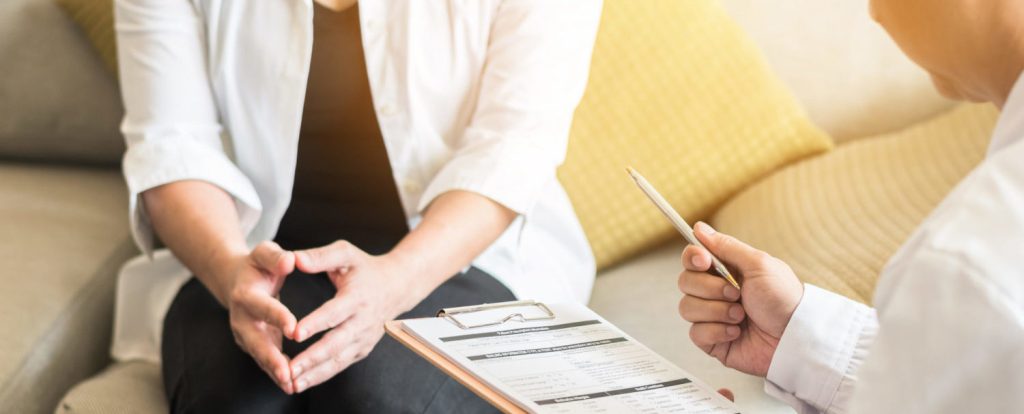
How Does Therapy Help in the Treatment of Depression?
Finding the Right Therapy to Help in the Treatment of Depression
Table of Contents
Major depression is the single most common mental illness in America. You may also know this illness by the name clinical depression.
Every year, millions of adults and teens experience at least one episode of this condition. And more than half of those affected are severely impaired by their symptoms. In addition, millions more suffer from some other depressive illness.
As part of their treatment, many people receive some form of psychotherapy. How does therapy help in the treatment of depression?
That depends on the type of therapy you receive. Several options have been shown to have benefits for seriously depressed people. Each type of psychotherapy for depression helps you in its own unique ways.
Defining Depression
The clinical depression definition includes a range of potential symptoms. Those symptoms include:
- A sense of helplessness, worthlessness or guilt
- A “down” or sad mood that lingers over time
- A unusually pessimistic outlook
- A decline in your normal energy levels
- Body aches or other unusual or unexplained pains
- Headaches
- Lack of excitement for or interest in previous favored activities
- A restless mood
- Bouts of anger or irritability
- A slowdown in your normal rate of speech or movement
- Significant changes in your sleep habits
- Unusual thoughts about dying
- Suicidal thinking, planning or actions
Not all cases of depression are the same. Instead, specific symptoms vary from person to person. However, everyone with major depression experiences their symptoms for at least 14 days at a time.
For a diagnosis, those symptoms must not have other explainable causes. In addition, they must significantly impair your normal ability to function.
Can You Cure Depression?

You may wonder how to get rid of depression. In other words, is depression curable? Strictly speaking, no. Some people only go through a single bout of the illness.
However, for many people, depression is chronic. This means that it lasts long-term rather than resolving quickly.
Can you overcome depression? Yes, you can. In the vast majority of cases, depression is treatable. That is true even if you suffer from severe, long-term symptoms.
It may take time for you to improve once treatment has begun. However, with the right kind of help, almost everyone experiences a substantial easing of their symptoms.
Can You Recover from Depression With Therapy?
Does therapy work? Research shows that it does. This is true no matter how you are affected by depression. If you have relatively mild symptoms, you may not need any other form of treatment.
But how to treat severe depression? If you have moderate or severe symptoms, therapy may only form part of your overall treatment plan. To fully recover, you may need additional help from medication or another treatment option.
How Does Therapy Help?
Exactly how does therapy help in the treatment of depression? All forms of therapy have certain features in common. First, they are not medication-based treatments.
Instead, specialists refer to them as talk-based treatments. However, therapy requires you do more than talk. It also asks you to change such things as:
- How you think about yourself or the world in general
- The ways in which you tend to respond emotionally to stressful situations
- Everyday behaviors that reinforce your depression symptoms
There are also differences in the available forms of therapy. Those differences may include specific therapeutic goals. They may also include the ways in which those goals are pursued.
Types of Therapy for Treatment of Depression
Depression and mental health treatment facilities offer various types of therapy for depression. A main reason for this is the fact that not everyone benefits from the same kind of treatment.
This means that there is no universal best therapy for depression. Instead, the right choice for you depends on the details of your specific situation. Your potential options include:
Cognitive Behavioral Therapy
One option known to be effective for many people is cognitive behavioral therapy, or CBT. This therapy rests on the understanding that:
- Your habitual ways of thinking and feeling may harm your mental health
- Habitual ways of behaving may have the same harmful effect
- You can improve your mental health by changing these damaging habits
During CBT, you develop the ability make the needed changes in your thinking, emotional responses and behavior. Methods of doing this include:
- Understanding specific habits that make your depression worse
- Learning how to spot those habits when they appear
- Developing healthier alternatives that support your mental well-being
- Using role-playing exercises to prepare yourself for real-world situations
- Confronting uncomfortable feelings or thoughts that you usually avoid
Interpersonal Therapy
Many times, major depression develops in the wake of serious interpersonal changes in your life.
Examples of these kinds of changes include deep-seated conflicts and the death of someone close to you. Interpersonal therapy, or IPT, is a form of depression counseling that addresses such issues. It does so by helping you:
- Cope with high-stress interpersonal changes and situations
- Increase your resilience by improving your support network
Problem-Solving Therapy

As its name implies, the focus of problem-solving therapy is helping you find practical depression solutions. While enrolled in the therapy, you learn how to do such things as:
- Recognize stresses in your life that trigger negative emotional states
- Improve your ability to manage those negative states of mind
- Develop a more accepting and hopeful attitude about your situation
- Become more systematic in your approach to coping with stress
- Take a long view of your recovery and develop a more patient outlook
Psychodynamic Therapy
Counseling for depression and anxiety often includes psychodynamic therapy. This therapy seeks to address the deep psychological issues that underlie many mental health problems.
By doing so, it helps you improve your mental well-being. During psychodynamic therapy, your therapist helps you reflect on important factors in your past and present.
Examples of these factors include:
- Specific formative events in your childhood
- Your habitual ways of thinking
- Your typical emotional reactions
- The beliefs that helped form your self-identity
You also use your relationship with your therapist to work through harmful relationship patterns.
How Long Does Therapy Take?
How long does therapy for depression take? That depends, in part, on the type of therapy you receive. For example, many people complete cognitive behavioral therapy in as little as 10 to 15 sessions.
Initial treatment in interpersonal therapy usually lasts for 12 to 16 sessions. There are short and long forms of psychodynamic therapy.
The short form may involve up to 25 sessions. The long form may last for up to two years, or even longer.
Therapy as a Treatment for Long-Term Depression

If you are severely affected by depression, you may need ongoing treatment for your symptoms. All of the major forms of therapy can be adapted for long-term use. As long as you need help, you can continue to benefit from the right form of treatment.
Additional Treatment Options for Depression
Medications
Interventions for depression often include additional treatment options. That’s especially true if you have moderate or severe symptoms.
Many people receive help in the form of antidepressant medication. All of these medications help by making beneficial changes in your brain chemistry.
However, not all of them work in the same way. Depending on their method of action, antidepressants are grouped into one of the following categories:
- SNRIs, or serotonin and norepinephrine reuptake inhibitors
- SSIRs, or selective serotonin reuptake inhibitors
- Tricyclic antidepressants
- Atypical antidepressants
- Monoamine oxidase inhibitors, or MAOIs
As a rule, it takes a while for an antidepressant to produce its effects. In addition, not everyone responds well to the same kinds of medication.
For these reasons, patience is a true virtue for those receiving this form of treatment.
Direct Brain Stimulation
If therapy and medication do not provide sufficient relief, you may receive some form of direct brain stimulation. The most common form of this treatment is electroconvulsive therapy, or ECT.
This therapy sends controlled amounts of electrical current through specific parts of your brain. Other options for direct stimulation include:
- Repetitive transcranial magnetic stimulation, or rTMS
- Vagus nerve stimulation, or VNS
Only a small percentage of people receive one of these treatments.
Learn More About How Therapy Helps in the Treatment of Depression
Depression is widespread in all areas of the U.S. Current research shows that more and more people are affected each year.
Therapy is often vital to an effective recovery from depression. Multiple types of this treatment may help relieve symptoms of the illness.
Therapy provides benefits on its own. However, more severe cases of depression tend to require additional treatment.
At Emerald Isle, we specialize in effective treatment for the effects of depression. Our options for treatment include therapy designed to provide you with the greatest possible amount of symptom relieve.
We also offer additional options for your depression recovery plan. Whether you need outpatient care or inpatient care, our staff of experts will help you every step of the way.
For more information on how we use therapy to support your well-being, contact us today.